Review: Soothe Your Starlit Soul & Create A New Cosmos With Planetarium
September 20, 2018 by cassn
"The cosmos is all that is or ever was or ever will be. Our feeblest contemplations of the cosmos stir us— there is a tingling in the spine, a catch in the voice, a faint sensation, as if a distant memory, or falling from a height. We know we are approaching the greatest of mysteries." - Carl Sagan, Astronomer
“OMG THIS GAME IS SO ADORABLE!" - Cass, Definitely Not An Astronomer
Okay, I’m no Carl Sagan. I’m not even a dorky Brian Cox or a lovable Neil DeGrasse Tyson. I know very little about the cosmos, despite space playing a huge role in my childhood.
As a child, space was the final frontier; it was a galaxy far, far away. I got to see the Hale-Bopp comet in 1997, and I am blessed to live in a country where I can see the Aurora Borealis during winter.
Every summer, I still venture out at 2am, shivering down the cold back roads of Ireland to lay a blanket in sodden fields and get a glimpse of the Perseid meteor shower.
And at that moment I lie - freezing, wet and lonely - while the sky dances with light and my mind boggles at the small, blue, floating ball it somehow inhabits. Regardless of my scientific ignorance, my soul abounds among the starlight.
Yes - I am an uneducated Astro-nerd.
That’s why, when Planetarium launched on Kickstarter back in 2017, I was immediately hooked. In Planetarium, players contribute to the evolution of planets through the orbital collection of matter.
Matter tokens can crash into each other or onto one of four planetoids, or the planetoids themselves can move into the path of matter on an orbital axis and the resulting collision will form vents, clouds, air, water - even life itself. If that sciency sentence doesn’t rev up your Astro-libido, then I can’t help you.
There’s even a sci-fi expansion set. The last game I played, one of my planets developed Unobtanium. I had a frickin' Avatar planet.
So for all you fellow stargazers, here follows a review on the best game I ever backed, and why humanity should always reach for the stars.
Playability
In Planetarium, a new solar system will be born, forged from the swirling mass of matter that orbits its star. Players will take part in this creation, moving tokens to simulate gravity and the acceleration of matter, then crashing it onto planetoids that have already begun to form.
Explained in its most basic mechanic, the objective of Planetarium is to obtain the most victory points by completing goals set by different tiers of card difficulty - but that’s a bit like saying Picasso made pictures by moving a brush back and forth. Planetarium exists as so much more than its base mechanic.
Players operate on a circular board made of matter and planetoid tokens. On their turn, players may move a planetoid or matter token one space in orbit. Matter is then collected and placed on a player’s mat on the planetoid which they wish to evolve
Once they have collected all the necessary matter to complete a low or high evolutionary card objective, the player can play that card, on their turn, onto the planetoid they are working to evolve. Their evolution is noted through a player token placed on the card, and the matter used is placed on the evolutionary track.
Final evolution cards (cards played at the end of the game to create a final, fully-evolved planet) can only be played onto a planetoid where a player has already contributed to its previous evolution, so contributing to the formation of every planet becomes tactically advantageous.
When enough matter has been collected on the evolutionary track, evolution speeds up, allowing matter to move two spaces in orbit until final evolution is reached. When final evolution occurs, players may play one final evolution card onto each planet they have contributed to, providing that planet’s current evolutionary status meets all the objectives on the card.
That may have been a lot of information, but I have barely scratched the surface when it comes to discussing the mechanics of Planetarium. Needless to say, I find them absolutely fascinating and completely original.
However, perhaps the reason I have fallen so deeply in love with the mechanics of Planetarium is that they are consistently cohesive with the theme. Stéphane Vachon has outdone himself in this game, and I have incredible respect for this design.
Other highlights: planets can turn habitable or hostile to life depending on their current evolutionary development, planets can sweep out of orbit to crash into matter, and special card actions such as gravity, which allows a player the right to claim a matter token from anywhere on the board. That’s some sexy science.
Writing
The writing for this game is simply stunning. Yes, the rules are clearly written and easy to understand, but there is just so much more to this rulebook than a simple explanation.
There are plenty of famous quotes from Newton to Sagan, but there are also entire two page spreads dedicated to explaining how solar systems form and the search for new life on Mars. In fact, this rulebook is teeming with wonderful, exciting astro-facts you probably hadn’t even thought of before.
As if that wasn’t enough, each evolution card provides a brief description of the planetary development. For example, from the Sci-Fi expansion, the origins of Vulcan are explained:
In the mid-nineteenth century, an undiscovered planet was hypothesized between Mercury and the Sun. Named Vulcan it became a popular subject for science fiction writers.
This one fact blew my tiny, Trekkie mind. But every single card has one of these awesome facts. Want to know about icy moons? Planetarium has you covered.
Components
They’re awesome. The board, tokens and player mats are made of thick cardboard, and the evolution cards are made of quality card with a high gloss finish.
There are two types of planetoid to choose from - flat on the board or horizontal supported by plastic bases; I personally prefer the flat component, but that’s partially because they match the matter tokens in aesthetic. The rulebook is also finished in high gloss, which just adds to the overall joy when viewing this game as a work of artistic beauty (but more about art direction later!).
The scoring trackers and player markers are made of high-quality translucent plastic - you know, the ones that look like sweets and you know you shouldn’t eat them, but you’re pretty sure you could eat them. Don’t. But do marvel at what high quality they are.
There is also a suede bag included, which can be used for whichever component you wish (I personally use it to store my player mats) and plenty of bags for storing components and cards.
If I have one small criticism (a miracle considering how much I love this game), it is that the box could have storage compartments for different items. However, this is a common Kickstarter complaint. I have no doubt it will be rectified in the future.
Oh, did I forget to mention? There’s also a winner’s card to take a photograph with. Not that this game is really about winning. But it’s there if you want. And it’s adorable.
Art Direction
I will concede that it’s not difficult to make astronomy beautiful but, even so, Planetarium transcends the genre. For me, this game has as much value as a piece of art as a painting in a museum would. Dan and Greg May have succeeded in turning asteroid strikes and heated vents into masterpieces. Every card is created with the greatest of care in each individual design. However, Planetarium is more than a few well-crafted cards.
For me, it is incredibly difficult to describe the aesthetic satisfaction of the board as it develops from orbital matter to evolving planetoids, but it is akin to that same moment where I stand alone in a field and watch the cosmos perform before my eyes.
For me, true beauty is in that brief moment where thought stops and instead, your heart is moved. It has been a year and still, in each game, Planetarium brings to me an aesthetic joy few other games can accomplish. I could not do justice to Van Gogh’s Starry Night, and I cannot explain Planetarium. Play it. Experience it. Beauty is meant to be felt.
Replayability
This is perhaps the only category in which I can find some quantifiable fault. I love this game - I will play it continually. However, friends have informed me they can find it repetitive. Once you know the cards, I suppose for some it can become a bit predictable. However, I would argue that a lot of games are.
In Planetarium, every time you play, you create four different planets with different evolutions - in some games, you have four hostile planets; in some, you have four habitable. For crying out loud, in some you have Vulcan. As far as I’m concerned, it’s been a year and I will play this game every single moment I’m provided the opportunity. I don’t know about everyone else but, for personal preference, this game has endless replayability for me.
Also, I should add, there is a Kickstarter expansion (which I may or may not have already purchased) which has less than 12 hours left on the clock, is equally as beautiful, and should vary up the game mechanic significantly. Now, if you excuse me, I have a postman to bother.
Conclusion
I am currently unsure of my value as a critic. Asking a games reviewer to discuss their favourite game is a bit like asking an adrenaline junkie to describe their favourite rollercoaster - they’ll always forget to include the bumpy bits.
I have endeavoured to discuss the bad among the vast good, however, the truth is, I’m always going to love Planetarium. Like a sexy history teacher, I’ve come away from this game knowing more facts than before and feeling strange new feelings I can’t quite process. Damn you, Dr Conway. Damn you, Planetarium.
I can only hope I’m not alone in this vast world and somewhere amongst the wonderful readership of OnTableTop, there is another wandering soul staring longingly into the night sky, hearing their heartbeat echo among the stars.
And remember: "Space is for everybody. It's not just for a few people in science or math, or for a select group of astronauts. That's our new frontier out there, and it's everybody's business to know about space." - Christa McAuliffe, Astronaut
"Matter tokens can crash into each other or onto one of four planetoids, or the planetoids themselves can move into the path of matter on an orbital axis and the resulting collision will form vents, clouds, air, water - even life itself..."
Supported by (Turn Off)
Supported by (Turn Off)
Supported by (Turn Off)































![How To Paint Moonstone’s Nanny | Goblin King Games [7 Days Early Access]](https://images.beastsofwar.com/2024/12/3CU-Gobin-King-Games-Moonstone-Shades-Nanny-coverimage-225-127.jpg)









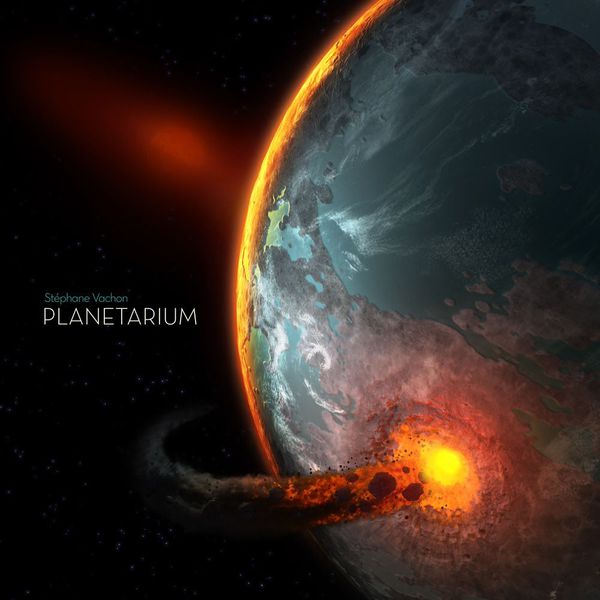
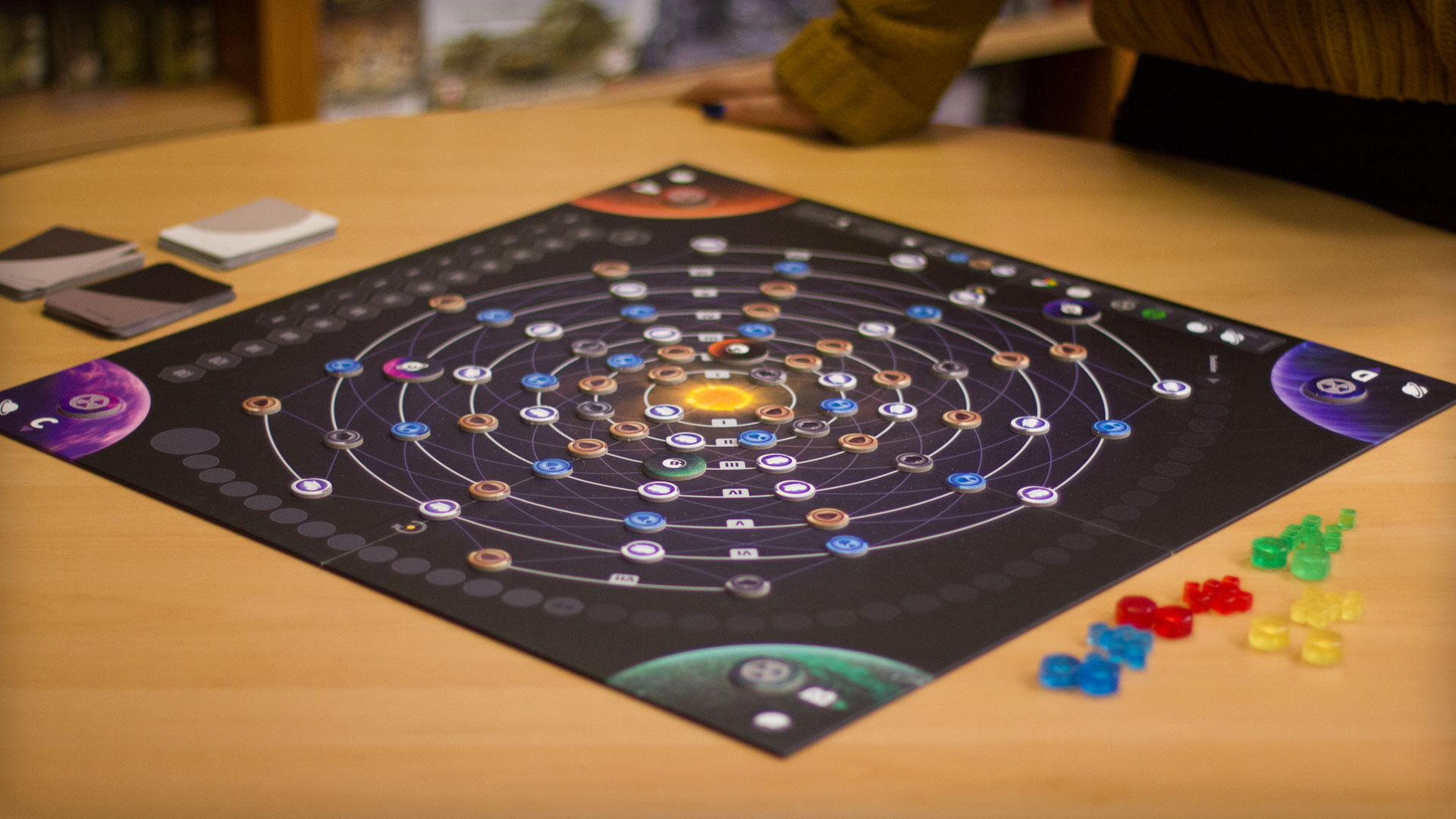
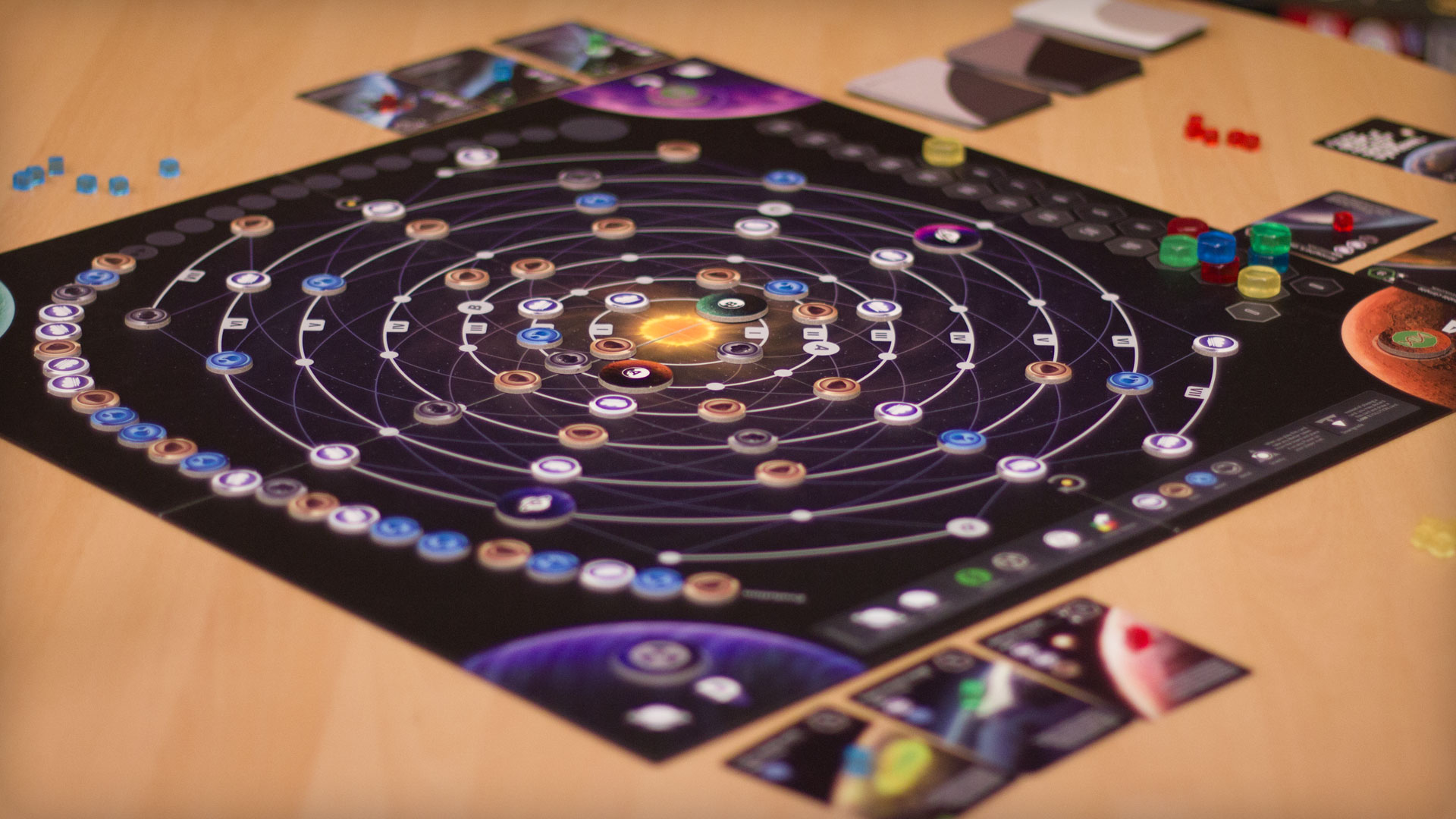
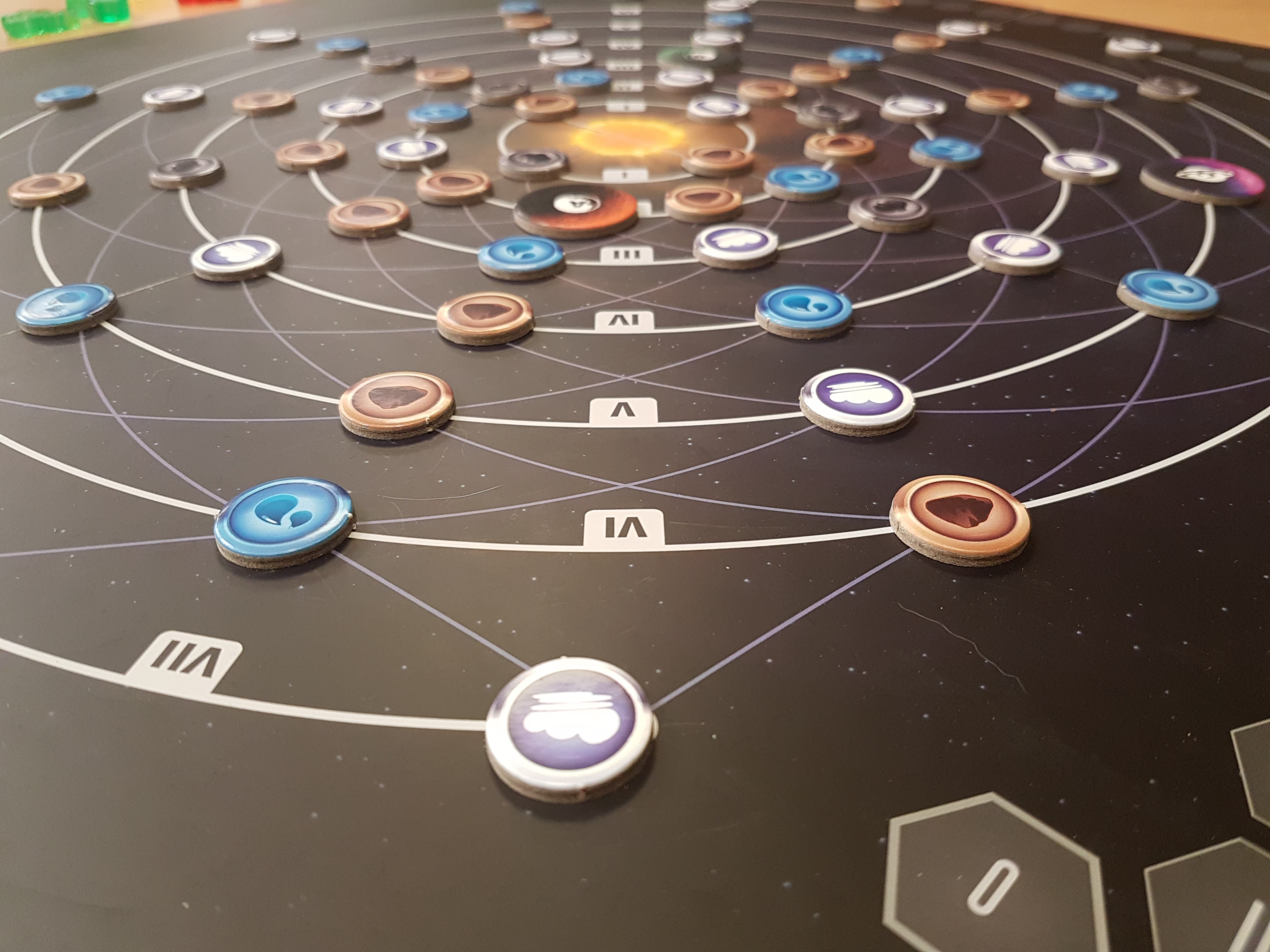
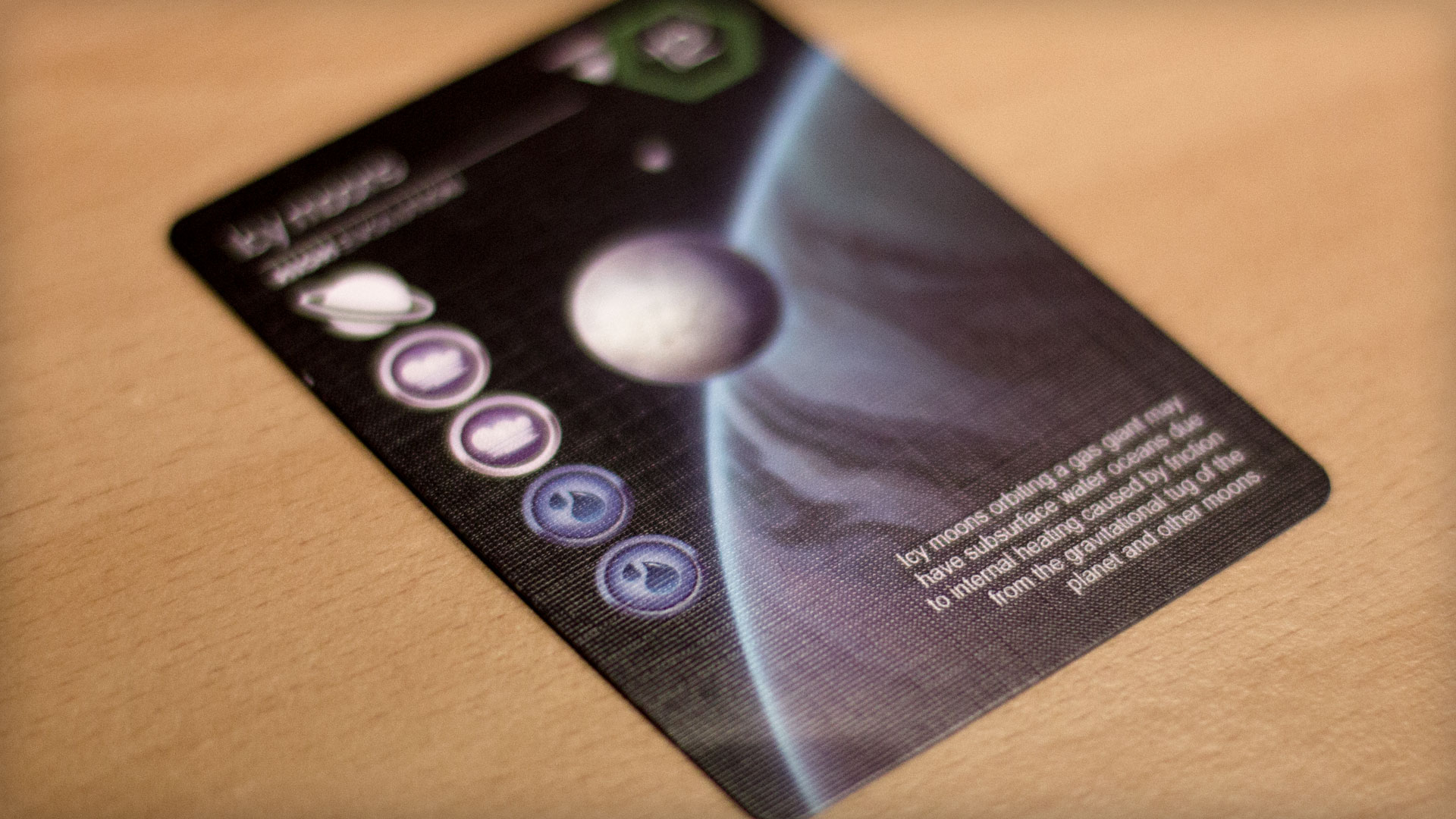


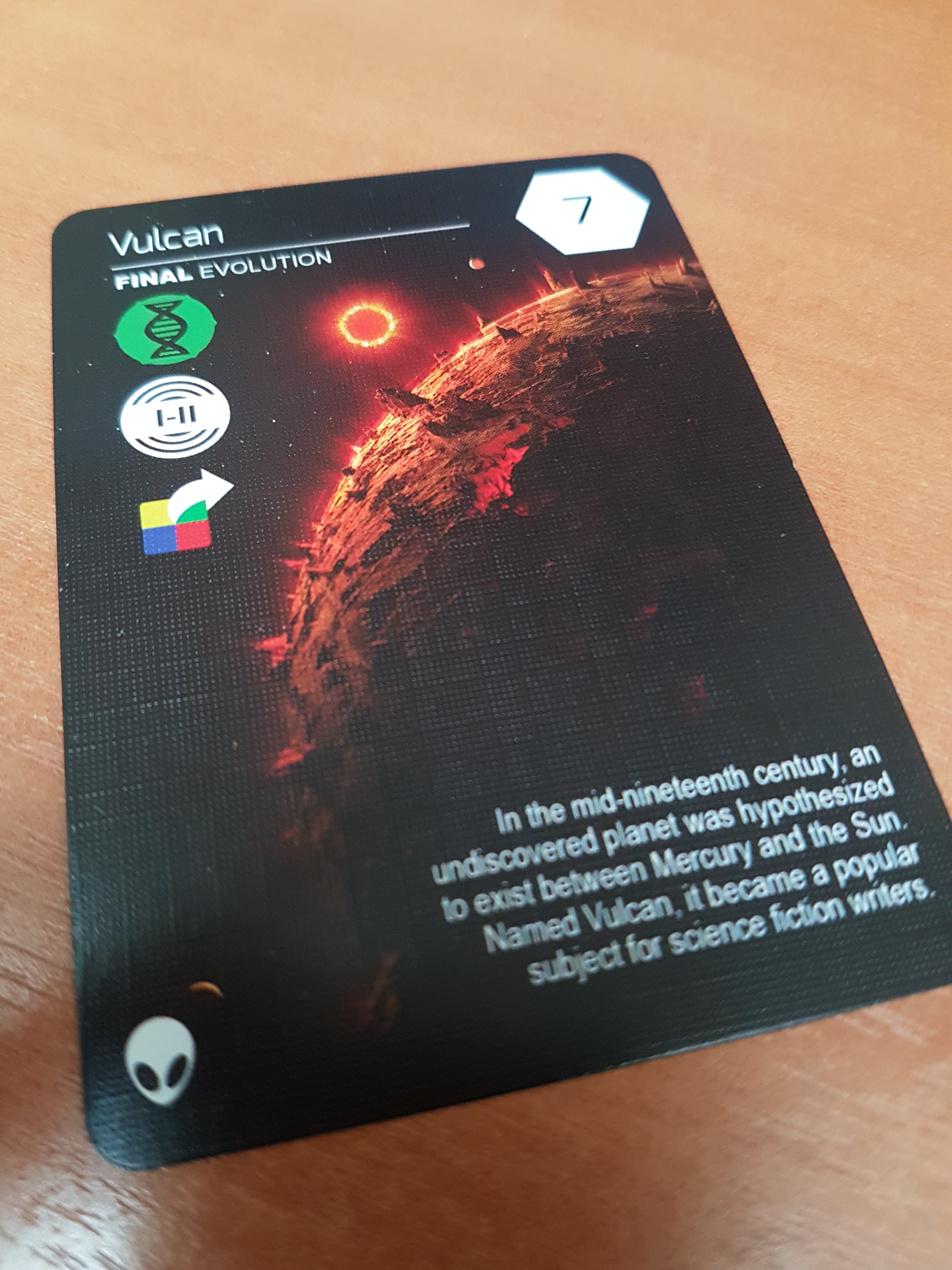
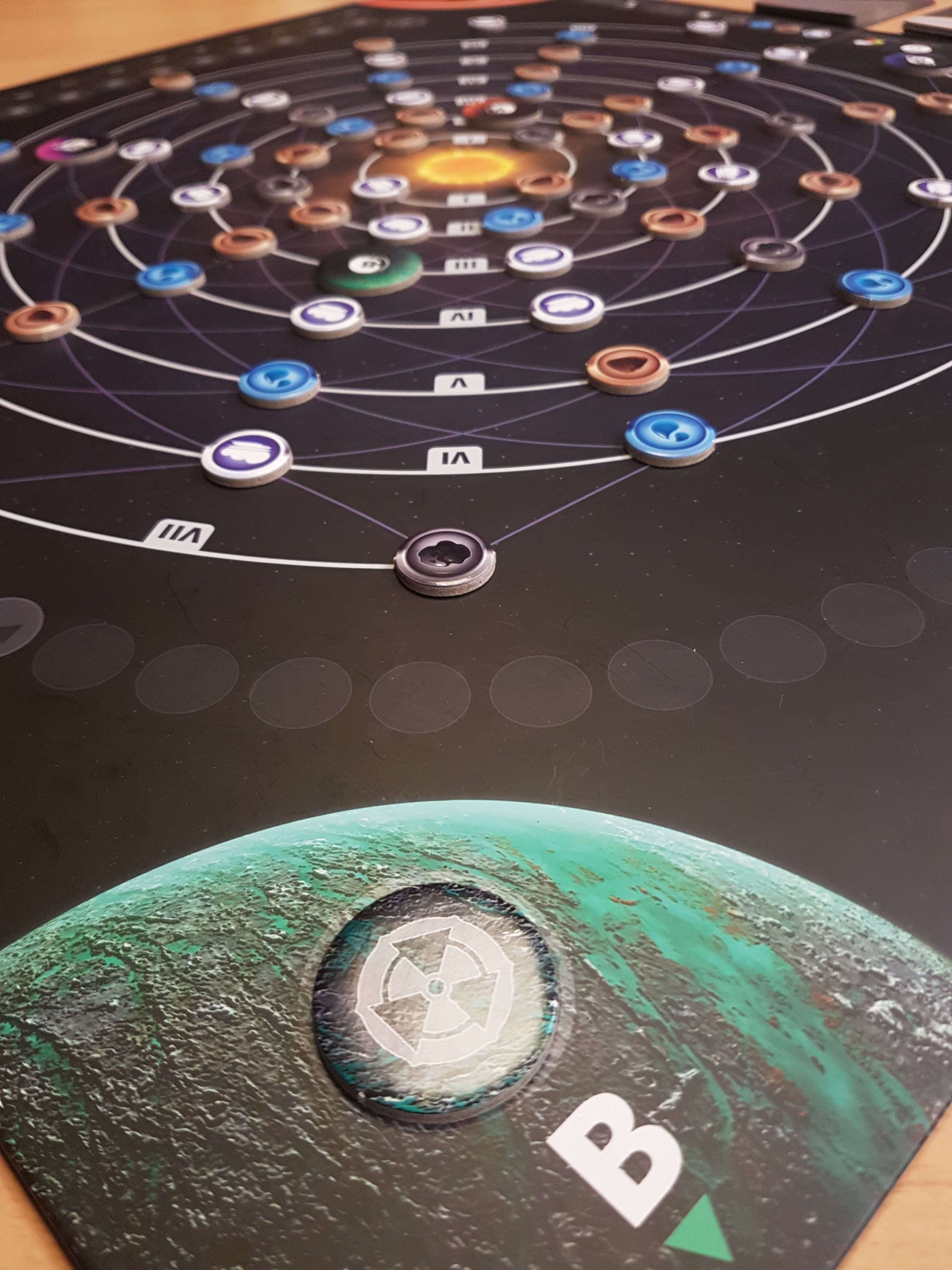





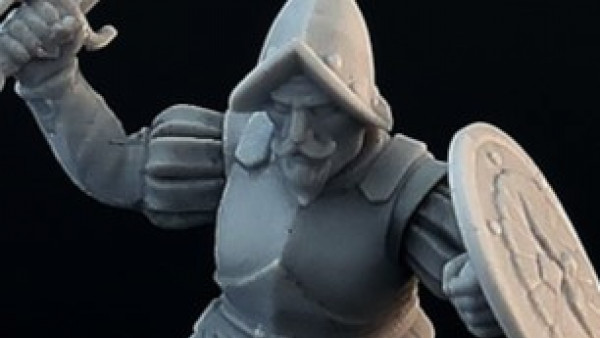













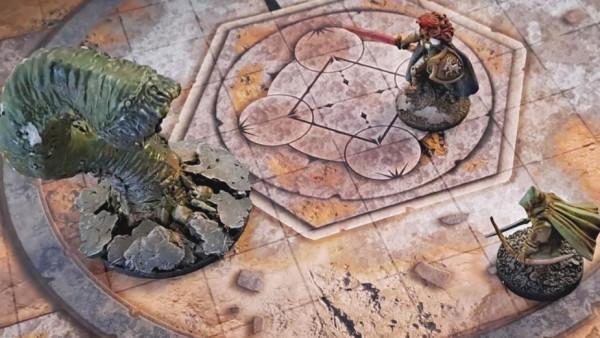










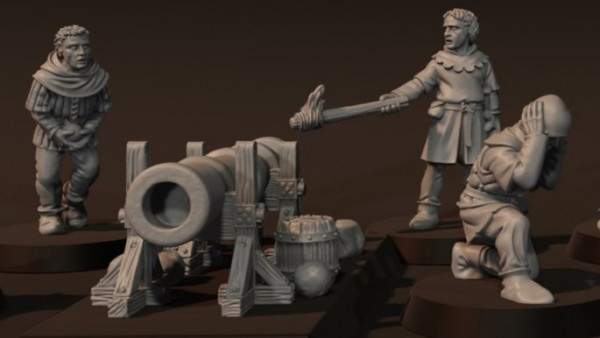

Thanks Cass for this review. I’m very interested by this game I’ve heard of few weeks ago only (on BoW/OTT, what a great site!)
Hope to see a gaming video here! ^_^
I brought in my own copy to take some photos earlier today and had quite a few people in the office ask me for a game, so I imagine a playthrough on camera is inevitable! Glad you enjoyed the review!
That looks frickin lovely*
* why I’m not a games reviewer
That was essentially my first draft lol
Wow, your REVIEW ist so beautiful written, i never played that game and now i Love it ? well done ?
*blushes* Thanks so much! Hopefully you get the chance to play it – it really is an awesome game ❤
Great review @cassn ! Definitely making me wish I’d gotten around to playing the copy I got off the Kickstarter >_<
Tell you what though, I just recently finished listening to Carl Sagan's Cosmos on Audible, as read by LeVar Burton, and it was awesome (the tv series – and the Neil DeGrasse Tyson sequel – aint bad either).
Ooh, it sounds awesome, I’ll definitely download a copy of it! Thanks for the kind words about the review – you’ve got an excuse to break out Planetarium on your next games night now!
Very awesome looking game – big fan of anything space-based (Terraforming Mars ftw) so looking forward to giving this a go.
I’ll have it in the office when you’re here Ben!!!
An interesting God game with a difference, looks a lot of planets on the table or do they whittle down over time With collisions, gravitational interactions, and the like. @cessh
There are only four planets – the rest of the tokens are matter tokens which you collect and then use to place cards on planets to evolve them. The game is a little component heavy, but I like that!
So a few game’s to get all the rules in to memory ? should do it then.
Nice review. I must say though, that my experience is quite different. In fact, I have only played it a couple of times since the KickStarter. After that I gave up and it’s been gathering dust since then. The game sounds interesting, yes. The quality is good and the art is great, yes. But there’s very little interaction between players, and the endgame is downright FUBAR’ed, being rather drawn-out and having the possibility of entering a state where the game cannot be completed. That being said though, I did pledge for the expansion. Hopefully it will add that little bit… Read more »
I’ve never had a game of Planetarium which couldn’t meet the end goal, I’m guessing I’ve missed something significant here in that respect.
However, I know what you mean about a lack of player interaction, but I don’t really mind. A lot of my games require extroversion, so it’s really nice to have this as an introverted alternative – it’s the ultimate chill out game for me.
I haven’t experienced it myself. Although I must say that my experience with the game suggested that the end-game can drag out a bit too long for comfort.
As I recall, there was a debate about it shortly after the release, probably on Boardgamegeek. Basically, because the game’s end is based on resource collection, you can have a situation where both players are fighting over the same resource, trying to move it into the right orbit for a winning move. But because all they’re doing is moving, not collecting, the game is effectively deadlocked and cannot end.
Hmmm…I suppose if you play it uber-competitively, this is a probable outcome. Weirdly (for me), this is one of the few games I don’t play with deep end-game strategies – otherwise yes, you’re right, you probably could drag it out for a while.
Luckily, I play with a pretty chill group of players, so this hasn’t happened to me yet, but I might have to engineer it in the next game and see what happens.
Thanks for pointing out the flaw – it’s amazing how different players can have completely different experiences based on how they play!!!
Now that’s a review,this is not the style of game I usually go for at all I’ll admit but you’ve completely captured my attention. Like you I grew up staring at the sky dreaming of the final frontier, i’m definitely going to look into thiss??
It wouldn’t be my sort of game either – I literally backed it because it was pretty! Absolutely love it now ❤